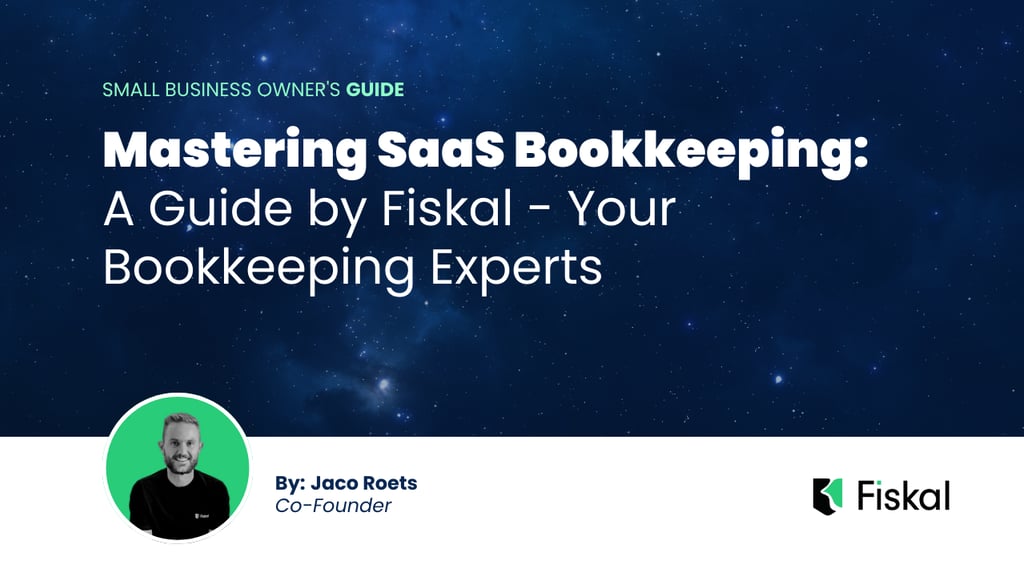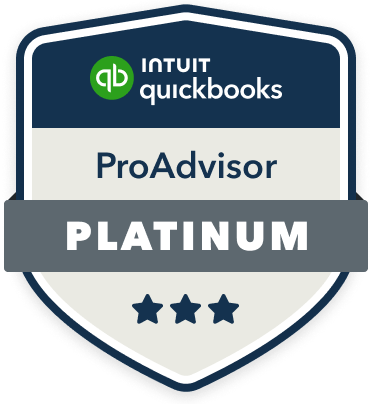Mastering SaaS Bookkeeping: A Guide by Fiskal - Your Bookkeeping Experts
In the rapidly evolving SaaS industry, precise and efficient bookkeeping is a cornerstone of success. At Fiskal, we understand the unique challenges that SaaS companies face when managing their financial records. Our team of bookkeeping experts is dedicated to helping you streamline your financial processes, ensuring accuracy, compliance, and strategic insights that drive growth. In this blog post, we’ll delve into the essentials of SaaS bookkeeping and how Fiskal can support your business in mastering this critical function.
SYSTEMS AND SOFTWARE


Why Bookkeeping Matters in SaaS
Bookkeeping is the systematic recording and organizing of financial transactions. For SaaS companies, meticulous bookkeeping is vital for several reasons:
Accurate Financial Reporting: Reliable financial records are essential for preparing accurate financial statements, which inform stakeholders about the company's financial health.
Regulatory Compliance: Proper bookkeeping ensures compliance with financial regulations and accounting standards, avoiding legal complications and penalties.
Informed Decision-Making: Accurate financial data supports informed strategic decisions, helping SaaS companies allocate resources effectively and pursue growth opportunities.
Investor Confidence: Transparent and accurate financial records build investor confidence, crucial for securing funding and fostering trust.
Key Elements of SaaS Bookkeeping
1. Revenue Recognition
SaaS companies often deal with subscription-based revenue, which requires careful revenue recognition to comply with accounting standards such as ASC 606. Revenue must be recognized when it is earned, not necessarily when it is received. This involves:
Deferred Revenue: Recording payments received in advance as liabilities and recognizing them as revenue over the subscription period.
Revenue Allocation: Allocating revenue correctly among different performance obligations within a contract.
2. Expense Tracking
Keeping track of expenses is crucial for managing cash flow and ensuring profitability. SaaS companies should categorize expenses accurately, including:
Operational Costs: Costs related to running the business, such as salaries, rent and utilities.
Capital Expenditures: Investments in long-term assets like software development and equipment.
Cost of Goods Sold (COGS): Direct costs associated with delivering the SaaS product.
3. Subscription Billing and Invoicing
Efficiently managing subscription billing and invoicing is essential for maintaining cash flow. This includes:
Automated Billing Systems: Implementing systems that automate recurring billing to reduce manual errors and ensure timely payments.
Invoice Management: Creating and tracking invoices to ensure accurate billing and prompt collections.
4. Cash Flow Management
Effective cash flow management ensures that SaaS companies have sufficient liquidity to meet operational needs and invest in growth. This involves:
Cash Flow Forecasting: Predicting future cash inflows and outflows to anticipate and mitigate cash shortages.
Working Capital Management: Managing receivables, payables and inventory to optimize cash flow.
5. Financial Reporting and Analysis
Regular financial reporting and analysis provide insights into business performance and inform strategic decisions. Key reports include:
Income Statement: Summarizes revenue, expenses and profit over a period.
Balance Sheet: Provides a snapshot of the company’s financial position at a given time.
Cash Flow Statement: Details cash inflows and outflows, highlighting the company’s liquidity.
How Fiskal Can Help
At Fiskal, we specialize in providing tailored bookkeeping solutions for SaaS companies. Here’s how we can support your business:
1. Expertise in SaaS Accounting
Our team has deep expertise in SaaS accounting, ensuring that your financial records comply with industry standards and best practices. We handle the complexities of revenue recognition, expense tracking and subscription billing with precision.
2. Customized Bookkeeping Services
We understand that every SaaS company is unique. Our customized bookkeeping services are designed to meet your specific needs, whether you’re a startup or a growing enterprise. We offer scalable solutions that evolve with your business.
3. Automated Solutions
Fiskal leverages the latest bookkeeping technologies to automate routine tasks, reducing manual errors and improving efficiency. Our automated systems ensure timely and accurate invoicing, billing and financial reporting.
4. Insightful Financial Reporting
We provide detailed financial reports and analysis, offering insights into your business performance. Our reports help you make informed decisions, optimize operations, and drive growth.
5. Dedicated Support
Our team of bookkeeping experts is always available to provide support and answer your questions. We work closely with you to understand your business goals and ensure your financial records are in top shape.
Conclusion
Effective bookkeeping is essential for the success of SaaS companies. By focusing on key elements such as revenue recognition, expense tracking and cash flow management, SaaS businesses can achieve accurate financial reporting, maintain regulatory compliance and make informed strategic decisions. At Fiskal, we are committed to helping you master your bookkeeping processes. Our expertise, customized services and automated solutions ensure that your financial records are accurate, compliant, and insightful.
For more information on how Fiskal can support your SaaS bookkeeping needs, visit our website or contact our team of experts today. Let us help you navigate the complexities of SaaS accounting and drive your business forward with confidence.












